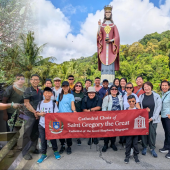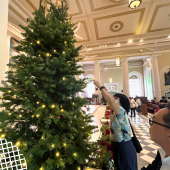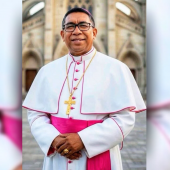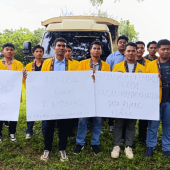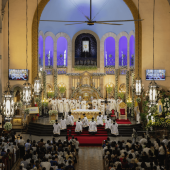Singapore Archdiocese endorses government statement on race, religion
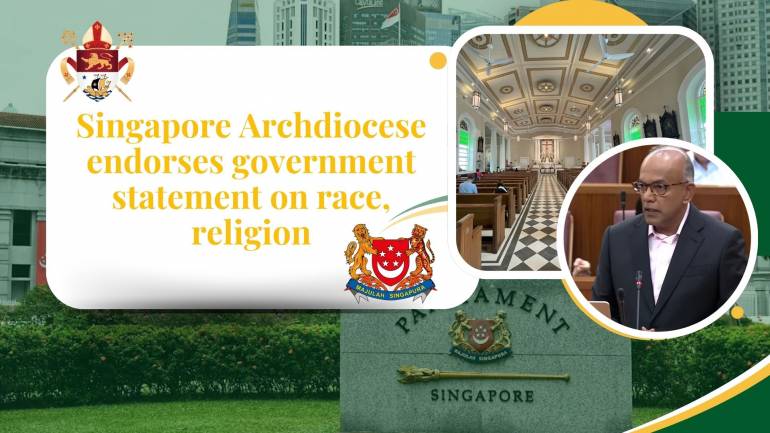
The Catholic Archdiocese of Singapore has endorsed a statement on race and religion delivered by the Coordinating Minister for National Security, Mr K. Shanmugam, in Parliament, on October 14.
Mr Shanmugam, who is also the Minister for Home Affairs, delivered an hour-long speech outlining his concerns about how certain Singapore candidates from Opposition parties, a “self-styled preacher” in Malaysia, and some Malaysian politicians had urged Singaporeans to vote along racial and religious lines in the run-up to the city-state’s General Election on May 3.
Mr Shanmugam warned that if such identity politics gained traction, it would be a “one-way street to ruin” for Singapore.
In its statement released on October 16, the Archdiocese said it “endorses” the ministerial statement. “We strongly support Singapore’s foundational commitment to multi-racialism, respect for religions, and equal opportunities for all citizens. The Catholic Church upholds the fundamental principle of Singapore’s secular space, respecting the legitimate autonomy between Religions and the State.”
In his speech, Mr Shanmugam said he decided to highlight the importance of multi-racialism in Singapore at the earliest opportunity after the opening of Parliament, even though Parliament had discussed it in the past, as sensitive race and religion issues brought up during the May election “warrant this being raised again”.
“Asking Singaporeans to vote for political parties and candidates along racial, religious lines is a reckless thing to do,” he said.
He noted that “the natural result in a democracy will be that the largest and the best organised religions and races will get their way … The other natural result is that followers of different races and religions will clash.”
However, “that is not to say that race and religion on the one hand, and politics on the other hand, are incompatible,” said Mr Shanmugam. “All religions provide guidance on important aspects of life. So inevitably, there will be areas where faith and public issues overlap.”
However, “public, political debate must be conducted and decided on a secular basis”, he said, adding that “religion must not be misused for political purposes …The same logic applies to race.”
The Singapore Archdiocese, in its statement, said that the separation between religions and the state “ensures religious communities refrain from imposing their beliefs through political interference, whilst politics must also respect the rights of believers to their faith, so long as it is not prejudicial to the rights of others or the common good.”
The Archdiocese noted that the Church’s role in the public square includes speaking up on matters of universal moral concern, such as justice, peace, poverty, the family, and the protection of human dignity.
“Our participation is a necessary civic duty to contribute to the Common Good, ensuring the needs and rights of the vulnerable and marginalised, including minority groups, are always protected and considered in public life,” said the Archdiocese.
It stressed that the Catholic Church’s commitment to racial and religious harmony is rooted in its belief in the “inviolable dignity of the human person”.
“This conviction is enshrined in the Church’s social teaching that we are one human family, committed to fostering the Common Good of all peoples,” said the Archdiocese. “We support the Government’s policies that promote genuine inter-faith dialogue, shared community spaces, and the forging of a common, inclusive Singaporean identity”.
It added that the Catholic Church “believes deeply in a multi-racial and multi-religious Singapore and prays that this vital ideal remains a vibrant reality for all generations”.
Singapore has a population of about 6 million made up of Chinese, Malays, Indians, Eurasians, and other races. Religions in the city-state include Buddhism, Taoism, Christianity, Islam, Hinduism, and Sikhism.
(Christopher Khoo is a Singapore-based freelance journalist and educator.)
Radio Veritas Asia (RVA), a media platform of the Catholic Church, aims to share Christ. RVA started in 1969 as a continental Catholic radio station to serve Asian countries in their respective local language, thus earning the tag “the Voice of Asian Christianity.” Responding to the emerging context, RVA embraced media platforms to connect with the global Asian audience via its 21 language websites and various social media platforms.









